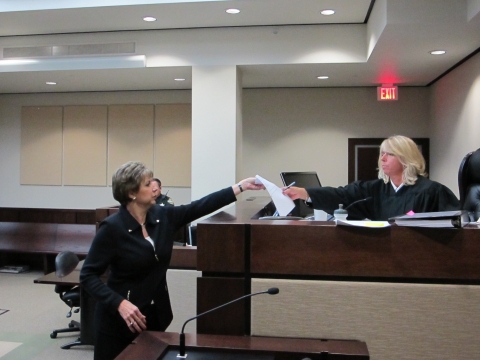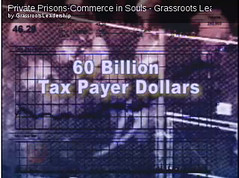Who can afford to pay for these two glossy mailers pushing the charter school amendment? Who are GeorgiaHope2012.org and BrighterGeorgia.org, anyway? Recipients of millions from Alice Walton and the Walton Family Foundation to push a bill sponsored in the statehouse by ALEC’s “our state legislators”. Will we believe Alice Walton and ALEC, or will we believe our Georgia educators, who overwhelmingly oppose Amendment 1?
GeorgiaHope2012.org’s mailer (the big one) says in really light grey type:
Paid for by Families for Better Public Schools Edward Lindsey Chairman
We’ve heard of them before. They raised $486,750 by September, about 96% from outside Georgia, including Alice Walton ($250,000), K12 Inc. of Virginia ($100,000), Charter Schools USA of Florida ($50,000), J.C. Huizenga and National Heritage Academies Inc. of Michigan ($25,000 each). Their spokesman Bert Brantley (who went to Lowndes County public schools) claims the bogus preamble to the charter school amendment, the one that uses ALEC Family Trigger jargon and asserts things that just aren’t in either of the authorizing bills; he claims that preamble is “factual”. His previous PR campaign was pushing the T-SPLOST transportation tax that failed by a landslide.
Families for Better Public Schools is still playing the charter school bait and switch in their mailer by pretending Amendment 1 is needed for charter schools:
EVERY CHILD DESERVES A CHANCE! VOTE YES! for Public Charter Schools on November 6th.
We don’t need this amendment to create charter schools. Any local school board can already do that.
BrighterGeorgia.org’s mailer (the smaller one) says in grey on grey type:
Paid for by Georgia Charter Schools Association
GCSA got $700,000 from the Walton Family Foundation last year, and is a member of Continue reading



